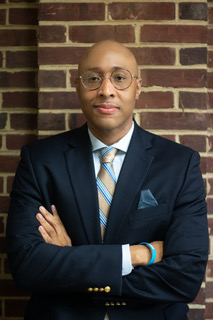- School of Social Work
- About Us
- Academics
- Field Education
- Research
- Opportunities & Organizations
- Connect With Us
- Professional Opportunities
- Newsletters
- News
- Interest Meeting
- Antoine Lovell on Tackling Youth Violence
- Interdisciplinary Minority Fellowship Program 2024 Interdisciplinary Training Summit
- BSW Social Justice Symposium/Senior Seminar
- Research - Social Work practice and Artificial Intelligence
- Mirranda Williams: Empowering Communities: Redefining Disability as Strength and Inspiration
- Staff Bios
- Embracing the Path of Social Work: Nurturing Change and Empowering Communities
- Embracing the Unforeseen Path: My Journey in Social Work
- Faculty Bio
- Travel Log: The 14th International Conference on Early Intervention in Mental Health in Lausanne, Switzerland
- First of Its Kind: Morgan State University School of Social Work announces the launch of its DSW program.
- Marijuana Legalization Amendment
- HISTORICAL & ETHICAL CONSIDERATIONS FOR EARLY IDENTIFICATION OF PSYCHOSIS IN URBAN AFRICAN AMERICAN YOUTH
- SStephens
- EBlakeMorgan
- Alum - B Holmes
- L Brooks
- The African Summer for Academic Development Program
- Sekile M. Nzinga
- Events
Dr. Antoine Lovell Adds His Voice to the Fight Against Youth Violence in Baltimore
Baltimore, MD – Dr. Antoine Lovell, Assistant Professor of Social Work at Morgan State University, has become a pivotal voice in the ongoing discussion around youth violence in Baltimore. As the city continues to grapple with high rates of juvenile delinquency, Dr. Lovell is offering critical insights into how understanding the developmental phase of emerging adulthood could be the key to addressing the crisis effectively. His recent guest commentary, "Tackling Youth Violence in Baltimore Requires Understanding," shines a spotlight on how policymakers can craft compassionate, data-driven strategies to reduce violence among Baltimore’s youth. To read the entire article, click here.
Youth violence in Baltimore has reached alarming levels, but Dr. Lovell points out that by embracing research on emerging adulthood—a distinct phase between the ages of 18 and 25—policymake rs can make a tangible difference. Drawing from psychologist Jeffrey Arnett’stheory, Dr. Lovell emphasizes that this period is marked by identity exploration, instability, and self-focus, all of which create challenges and opportunities for young people at risk.
rs can make a tangible difference. Drawing from psychologist Jeffrey Arnett’stheory, Dr. Lovell emphasizes that this period is marked by identity exploration, instability, and self-focus, all of which create challenges and opportunities for young people at risk.
“The emerging adulthood phase is crucial in understanding why some young individuals engage in risky or violent behavior,” says Dr. Lovell. “By creating policies that recognize this unique developmental stage, we can tailor interventions that offer these individuals the support, structure, and resources they need to build more stable futures.”
Dr. Lovell’s commentary highlights several key areas where Baltimore can make a difference, including:
- Strengthening familial and community networks to provide stability and support.
- Expanding access to education and vocational training to give young people alternatives to crime.
- Prioritizing mental health services to help emerging adults cope with trauma and stress.
- Fostering positive engagement through sports, arts, and community service initiatives.
- Implementing a juvenile justice system focused on rehabilitation and restorative justice.
The social work professor’s call to action is critical when policymakers and community leaders are looking for innovative approaches to combat youth violence. Dr. Lovell’s insights advocate for a more compassionate, research-based strategy that addresses the risk and protective factors affecting Baltimore’s emerging adults.
With Dr. Lovell leading the charge, Morgan State University continues its tradition of empowering future leaders in social work, particularly in advocating for social justice and reform in urban communities. His involvement in this crucial discussion reflects Morgan State's commitment to addressing societal challenges and reaffirms the university's leadership in shaping a better future for Baltimore’s youth.
- School of Social Work
- About Us
- Academics
- Field Education
- Research
- Opportunities & Organizations
- Connect With Us
- Professional Opportunities
- Newsletters
- News
- Interest Meeting
- Antoine Lovell on Tackling Youth Violence
- Interdisciplinary Minority Fellowship Program 2024 Interdisciplinary Training Summit
- BSW Social Justice Symposium/Senior Seminar
- Research - Social Work practice and Artificial Intelligence
- Mirranda Williams: Empowering Communities: Redefining Disability as Strength and Inspiration
- Staff Bios
- Embracing the Path of Social Work: Nurturing Change and Empowering Communities
- Embracing the Unforeseen Path: My Journey in Social Work
- Faculty Bio
- Travel Log: The 14th International Conference on Early Intervention in Mental Health in Lausanne, Switzerland
- First of Its Kind: Morgan State University School of Social Work announces the launch of its DSW program.
- Marijuana Legalization Amendment
- HISTORICAL & ETHICAL CONSIDERATIONS FOR EARLY IDENTIFICATION OF PSYCHOSIS IN URBAN AFRICAN AMERICAN YOUTH
- SStephens
- EBlakeMorgan
- Alum - B Holmes
- L Brooks
- The African Summer for Academic Development Program
- Sekile M. Nzinga
- Events
Contact Information
School of Social Work
1700 E. Cold Spring Lane
Health and Human Services Center, Room 504
Baltimore, MD 21251
P: 443-885-3922
F: 443-885-8241
Contact Information
School of Social Work
1700 E. Cold Spring Lane
Health and Human Services Center, Room 504
Baltimore, MD 21251
P: 443-885-3922
F: 443-885-8241


